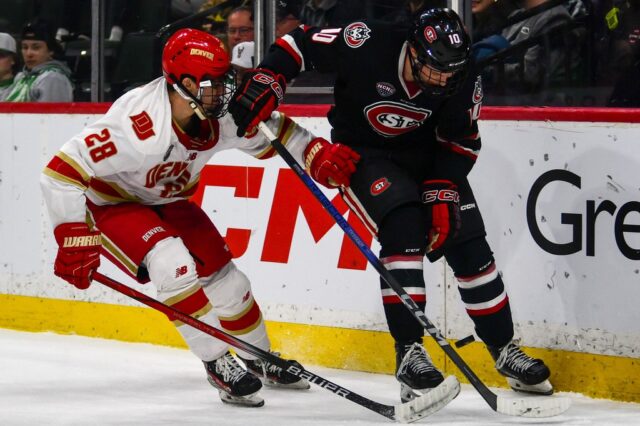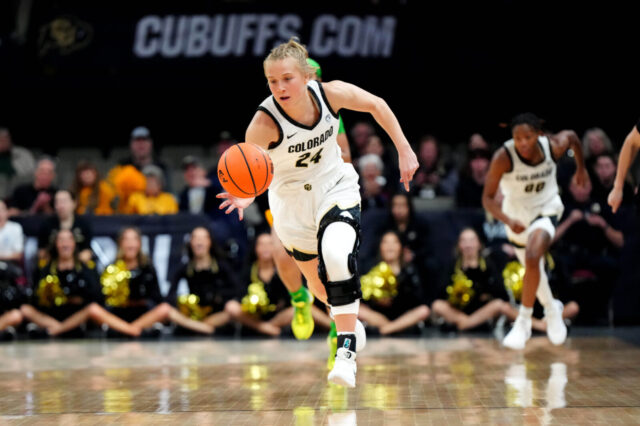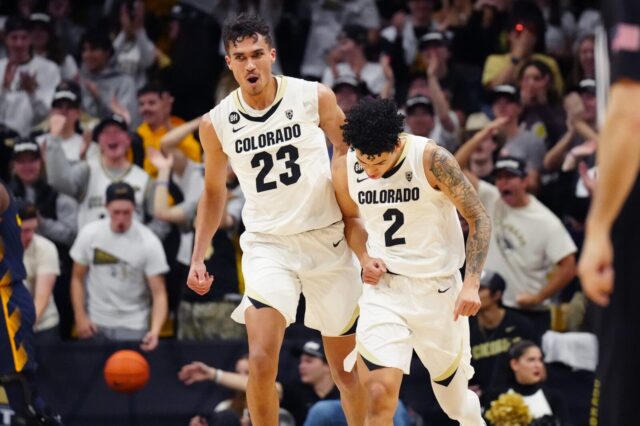This story originally appeared in Mile High Sports Magazine. Read the full digital edition.
If Rosenblatt is the most familiar name within college baseball circles, Suplizio should no doubt be a close second.
Formally known as Johnny Rosenblatt Stadium, the former is now the former home of the NCAA Division I Baseball Championships – better known as the College World Series.
The latter, Grand Junction’s Sam Suplizio Field, has been the home of the NJCAA Division I World Series – aka the Junior College World Series, or simply the JUCO World Series – since 1959. Suplizio Field is also home to the Grand Junction Rockies (the Rookie affiliate of the Colorado Rockies), Colorado Mesa University (NCAA Division II, RMAC) and the Mesa County School District.
Rosenblatt enjoyed a 61-year relationship with the College World Series before the ravages of age, decay and neglect forced the NCAA to move its premier summer event to a newly constructed stadium closer to downtown Omaha, Neb., where the annual tournament is played. A $7 million investment in 2001 to update the stadium and expand its capacity wasn’t enough to save the old municipal ballpark from becoming a parking lot for the adjacent zoo. Despite protests from locals, baseball blue bloods and even celebrities like Kevin Costner, the games were more important than their venue and the CWS moved across town to TD Ameritrade Park Omaha in 2011.
No such fate awaits Grand Junction’s crown jewel, at least not in the next few decades. The Grand Junction Rockies have a fifteen-year lease (which started in 2012) with three five-year extensions that team president Joe Kubly says the team absolutely plans on exercising. The NJCAA D-I World Series, meanwhile, is currently in a 25-year agreement to stay at Suplizio Field through 2035.
But beyond the long-term contractual commitments, there is a commitment to the greater Grand Junction community coming from the Grand Junction Baseball Committee (JUCO) – the local nonprofit group that helps to organize and execute the annual event. The “all-volunteer committee comprised of 80-plus community members,” as president Jamie Hamilton described it in a Grand Junction Sentinel guest editorial earlier this year, has provided long-term facilities improvements that benefit not just the World Series, but the high school, college and professional teams that will play a grand total of over 150 games on the field each year.
The committee’s work has extended beyond Suplizio Field alone. Their contributions have delivered upgrades to the adjacent Stocker Stadium, home to Colorado Mesa University football, as well as improvements for high school and little league facilities in Grand Junction. JUCO is positively impacting the Grand Junction sports community from youth levels all the way up to the professional ranks.
Suplizio Field earned its name in 1990 from Sam Suplizio, a former outfielder in the New York Yankees farm system, who directed the first NJCAA tournament in 1959 and served as chairman for 32 years to follow. His role, Hamilton said via the NJCAA, helped the tournament make the leap to national prominence.
JUCO’s role, Hamilton suggested in his guest editorial in the Sentinel, is not about recognition, accolades or contracts, but to “create, enhance and protect those intangible memories … for student-athletes, coaches and fans.” Memories that will keep the name Suplizio top of mind for a lifetime.
The 2016 JUCO World Series will be held May 28 – June 4. Tickets are available at monumentalevents.com.



